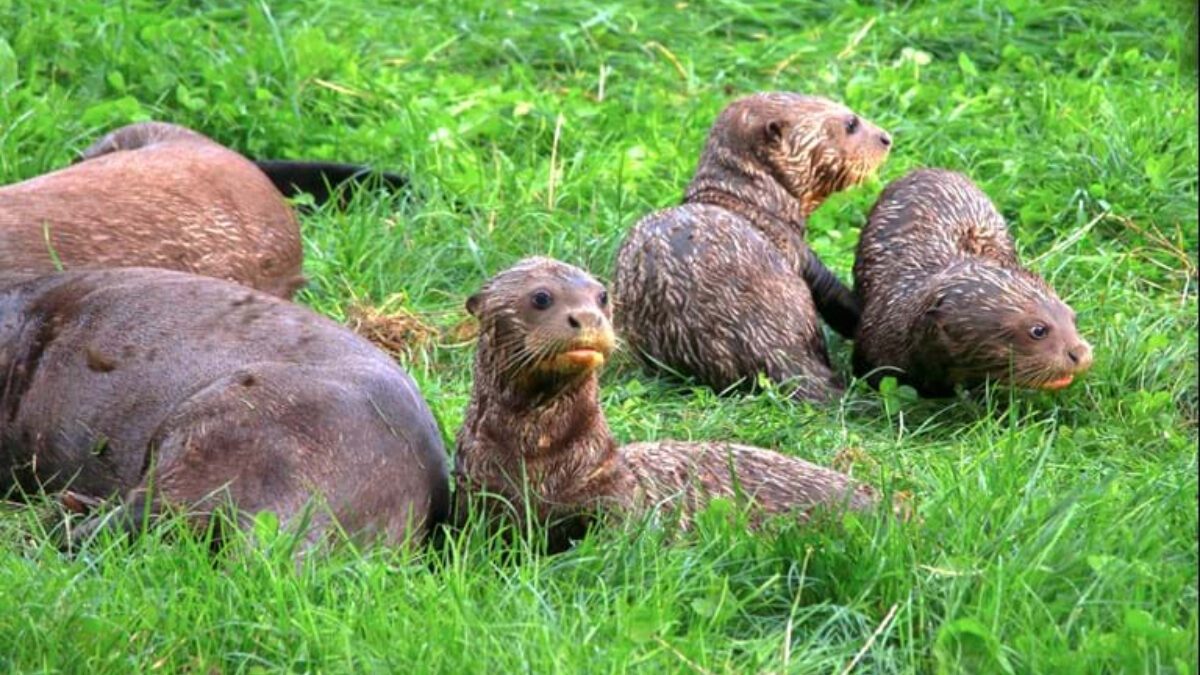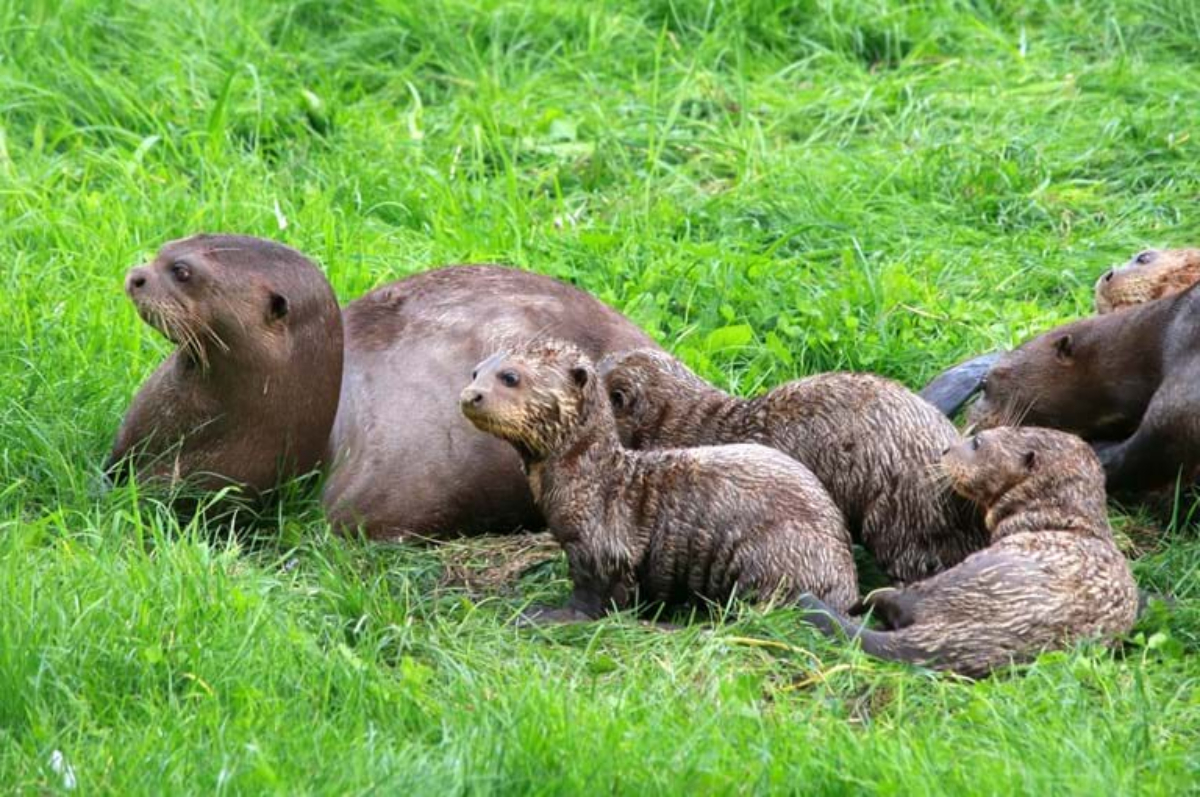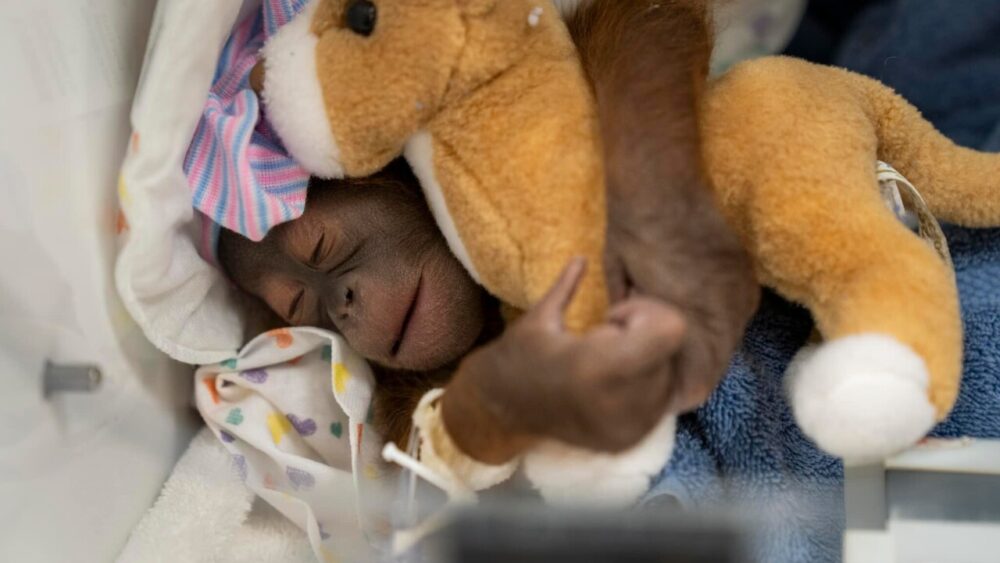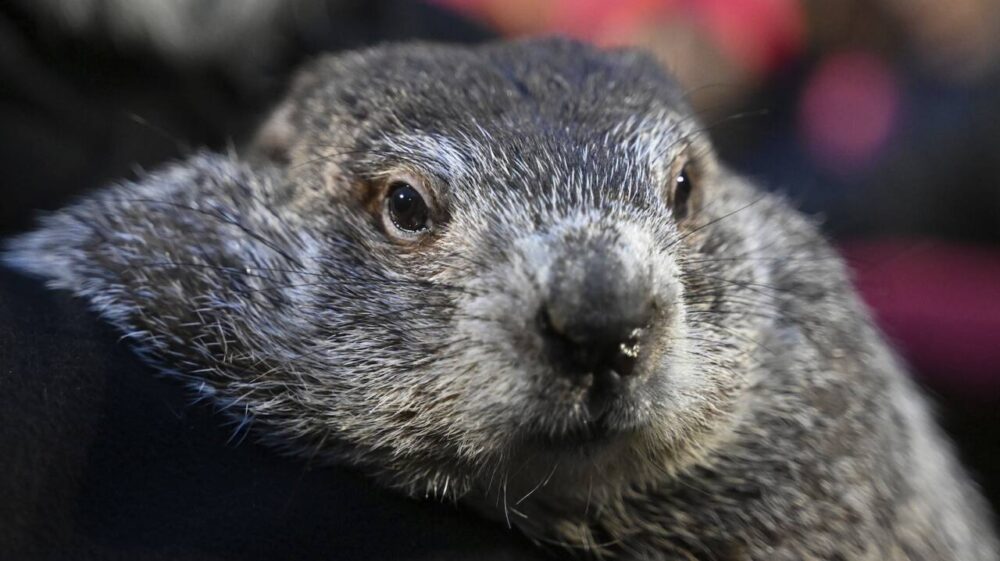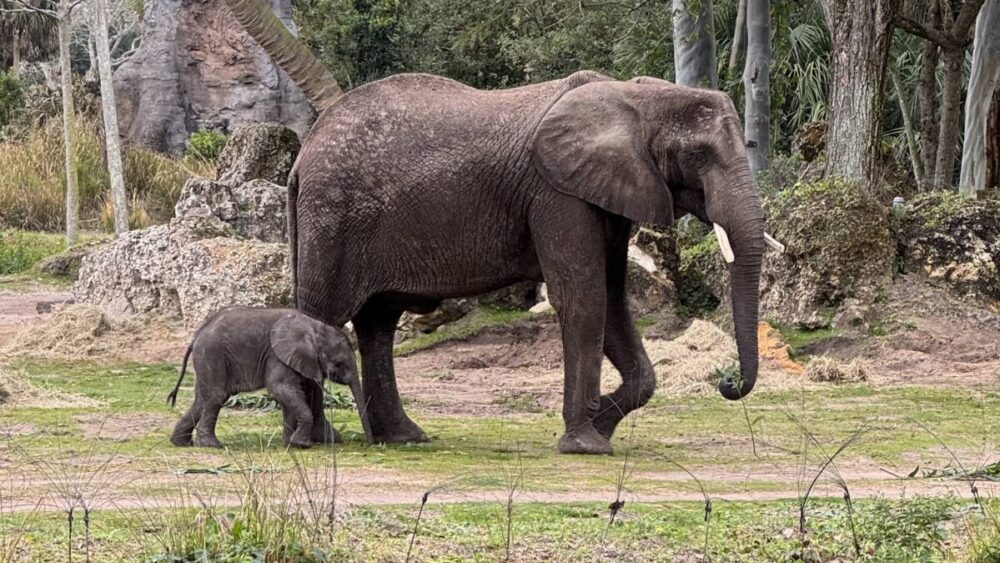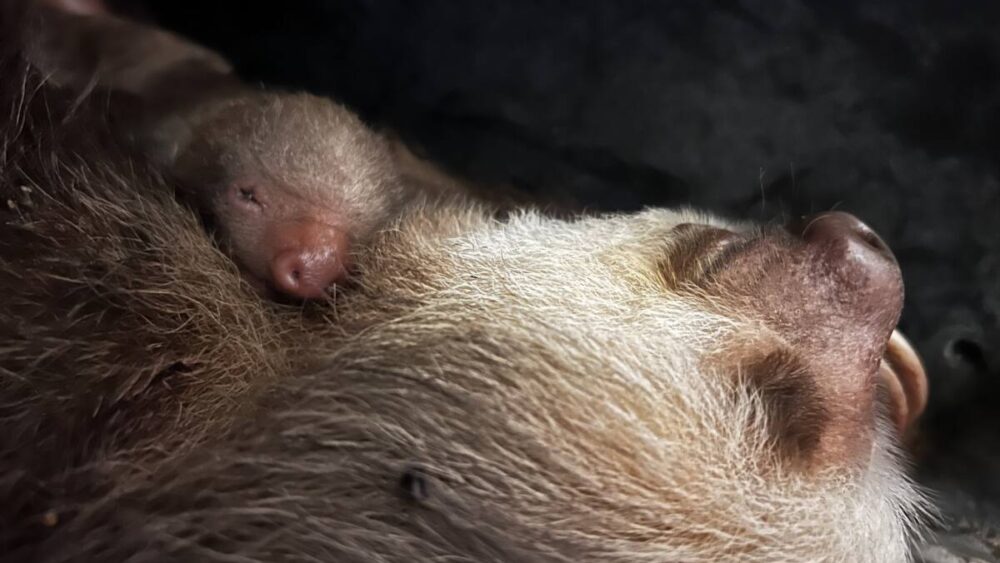Wildlife park welcomes endangered giant otter triplets
Three giant otter pups were recently born at Yorkshire Wildlife Park (YWP) in the United Kingdom, a big win for the endangered species.
The triplets were born on March 27. It is too early to know their sex, but proud mama otter Alexandra and her pups are doing well.
This isn’t the otter mama’s first litter — Alexandra and her partner Orimar welcomed another set of triplets just last year in 2022. Before that, Alexandra welcomed her first baby and the very first otter pup to be born at the wildlife park, Bonita, in 2020. Now the eldest sibling of seven, Bonita is helping Mom by looking after the older set of triplets.
“Mum Alexandra is very relaxed this time — you can see she is an experienced mother,” Kelsie Wood, YWP’s aquatics team leader, said on the YWP website. “Meanwhile, Bonita, the eldest sibling, is taking charge of the last litter of triplets born in February last year so that Alex can concentrate on the new cubs. It is a real family effort! We can’t wait to see them all grow up together.”
YWP has more giant river otters than any other wildlife sanctuary or zoo, with these three new pups bringing their total to nine.
“We are overjoyed at welcoming a second litter of giant otters in such a short time,” Wood said. “Giant otters don’t always breed easily and every birth is a significant and valuable one for the breeding program.”
These rare otters are only found in the wild in rivers in South America, according to Birmingham Zoo. Giant river otters are an endangered species. Their habitat has been reduced and degraded, and overfishing by humans can leave the otters with little to eat.
YWP’s Wildlife Foundation has partnered with Instituto Araguaia in Brazil in a three-year project aimed at protecting the otter habitat and preventing poaching.
“It is important we carry on the work to protect otters,” Wildlife Foundation Trustee Cheryl Williams said in a statement on the YWP’s website. “Despite all that has been done, giant otters remain at risk. The Foundation has been able to carry out this work thanks to the generosity of visitors and let’s hope that more people are inspired to support our work when they see the delightful new cubs at Yorkshire Wildlife Park.”


